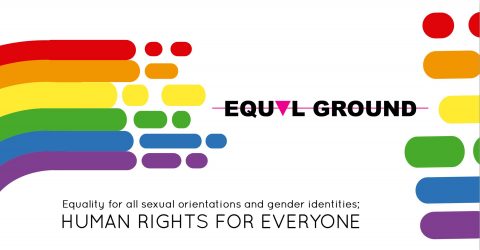From the Sunday times 21st December 2008
Sri Lanka has refused to sign a historic UN Declaration that urges member-states to decriminalize homosexuality.
Sixty six countries were signatories to this UN Declaration which condemns all forms of violence against homosexual persons and urges UN member states to take necessary measures to put an end to all criminal penalties against them.
Homosexuality is an offence under the Penal Code in Sri Lanka with carries a punishment of upto two years in prison. However local gay rights activist and director and founder of Companion on a Journey, Sherman De Rose said that they strongly oppose the move by the Government.
“We are against the fact that we are being called criminals in our own land. We are not criminals, we are citizens. It is totally incorrect to call us criminals. We have the right to live and be treated as normal human beings”, he said.
He added, “We have no right to stand by British law of the colonial era”.
Sponsored by France, the Declaration was backed by the 27 member European Union. The US, the Vatican, Russia and China, along with all Islamic countries, refused to sign the Declaration.
The non-signatories also included seven of the eight members of the South Asian Association for Regional Cooperation (SAARC): Afghanistan, Bangladesh, Bhutan, India, Pakistan, the Maldives, and Sri Lanka. Nepal was the only SAARC signatory.
The New York-based Human Rights Watch said that more than half of the world’s remaining legislation against sodomy and homosexuality were mostly relics of British colonial rule going back to a single law on homosexual conduct that the British imposed on India in 1860.
The 66 signatories to the General Assembly Declaration were: Albania, Andorra, Argentina, Armenia, Australia, Austria, Belgium, Bolivia, Bosnia and Herzegovina, Brazil, Bulgaria, Canada, Cape Verde, Central African Republic, Chile, Colombia, Croatia, Cuba, Cyprus, Czech Republic, Denmark, Ecuador, Estonia, Finland, France, Gabon, Georgia, Germany, Greece, Guinea-Bissau, Hungary, Iceland, Ireland, Israel, Italy, Japan, Latvia, Liechtenstein, Lithuania, Luxembourg, Malta, Mauritius, Mexico, Montenegro, Nepal, Netherlands, New Zealand, Nicaragua, Norway, Paraguay, Poland, Portugal, Romania, San Marino, Sao Tome and Principe, Serbia, Slovakia, Slovenia, Spain, Sweden, Switzerland, the former Yugoslav Republic of Macedonia, Timor-Leste, United Kingdom, Uruguay, and Venezuela.
An unprecedented gay rights declaration was submitted to the UN General Assembly by Argentinean ambassador Jorge Arguello, representing a third of the world body’s 192 countries.
“We urge states to take all the necessary measures, in particular legislative or administrative, to ensure that sexual orientation or gender identity may under no circumstances be the basis for criminal penalties, in particular executions, arrests or detention,” the draft document says.
The appeal is based on the Universal Declaration of Human Rights, which states in Article One that “All human beings are born free and equal in dignity and rights.”
The document reaffirms “that everyone is entitled to the enjoyment of human rights without distinction of any kind, such as race, color, sex, language, religion, political or other opinion, national or social origin, property, birth or other status.”
The 66 countries that signed the document “are deeply concerned by violations of human rights and fundamental freedoms based on sexual orientation or gender identity,” it said.
They are “disturbed that violence, harassment, discrimination, exclusion, stigmatization and prejudice are directed against persons in all countries in the world because of sexual orientation or gender identity.”
The signatories “condemn the human rights violations based on sexual orientation or gender identity wherever they occur,” especially “the use of the death penalty on this ground,” as well as their “arbitrary arrest or detention and deprivation of economic, social and cultural rights, including the right to health.”
After the draft was read, Netherlands Foreign Minister Maxime Verhagen and French Human Rights Minister Rama Yade held a high-level meeting to support the resolution.
“In this 21st century, how can we accept that people are hunted down, jailed, tortured and executed because of their sexual orientation?” asked Yade.
Yade, a Senegalese-born Muslim, acknowledged that the task would be “difficult.” Efforts to gather support for the text sometimes faced outright hostility, she said.
“The funeral pyres of intolerance are and have always burned everywhere,” she added before noting that homosexuality is still banned in 77 countries. Homosexuality is punishable by death in seven countries — Iran, Mauritania, Nigeria, Saudi Arabia, Sudan, the United Arab Emirates and Yemen.
Verhagen hailed the document’s historical significance.
“For the first time in history, a large group of member states speaks out against discrimination based on sexual orientation,” he said.
“With today’s statement, this is no longer a taboo within the UN. Discrimination on the basis of sexual orientation is firmly on the agenda of the United Nations.”
European Union member states, Brazil, Israel and Japan were among the signatories. But China, the United States and Russia refused to accede the declaration.
The Vatican considers the declaration a legitimate effort to stop the crackdown on homosexuality. But it worries that condemning anti-gay discrimination and biases will favor gay marriage, gay adoption or artificial insemination.
